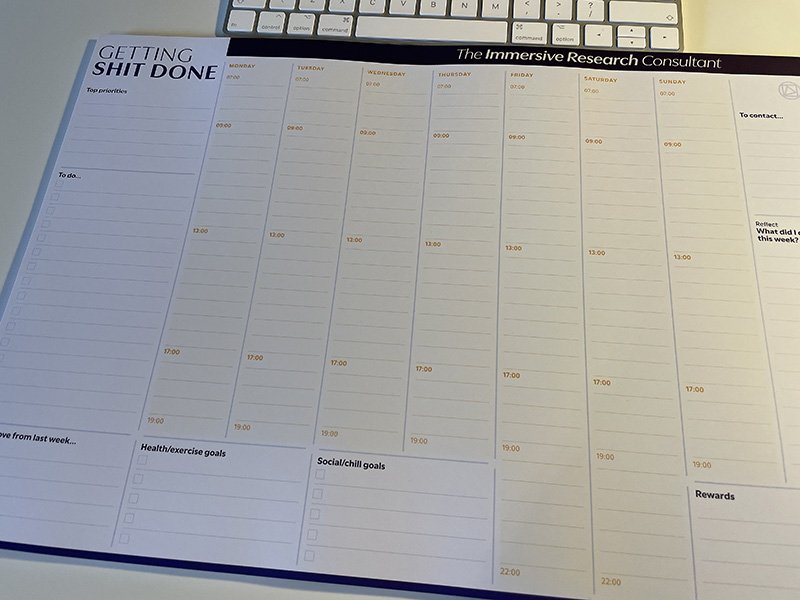Thoughts and Ideas
This section is a space for me to consider issues within society and contemporary culture.
Here, I’ll introduce and further develop ideas I like to work with, explain and expand on issues that stem from previous projects, as well as consider immersive research and developing practices.
Study a PhD with Dr. Christopher R. Matthews
I specialise in conducting and supervising immersive research, but I’m keen to discuss various projects and research methods with prospective students as well.

Managing your PhD supervisor
Academic success as a post-graduate researcher is often premised on having an effective relationship with your supervisors. Here are some broad ways of working towards making that happen.

Becoming an everyday writer
How do you become an everyday writer? Working on my writing daily is one reason I’ve had some success with my academic publications. This video lays out some ways to work towards becoming an everyday writer.

What makes a bad supervisor?
If you’re a supervisor, it's more than likely that you’ll benefit from getting better in various ways. Some of these ideas might help you reflect on the process of becoming a better supervisor.

Getting shit done: Part four
I talk about ‘getting shit done’ in Vol.1 of Doing Immersive Research. Helping people focus on this is an essential part of my job, it ensures they’re thinking of something specific when I teach them about academic ideas. This practical and pragmatic dimension is something that most people can do with enhancing, and my desk planner is a great way of doing that when it's aligned with this video series.

Getting shit done: Part three
I talk about ‘getting shit done’ in Vol.1 of Doing Immersive Research. Helping people focus on this is an essential part of my job, it ensures they’re thinking of something specific when I teach them about academic ideas. This practical and pragmatic dimension is something that most people can do with enhancing, and my desk planner is a great way of doing that when it's aligned with this video series.

Getting shit done: Part two
I talk about ‘getting shit done’ in Vol.1 of Doing Immersive Research. Helping people focus on this is an essential part of my job, it ensures they’re thinking of something specific when I teach them about academic ideas. This practical and pragmatic dimension is something that most people can do with enhancing, and my desk planner is a great way of doing that when it's aligned with this video series.

Getting shit done: Part one
I talk about ‘getting shit done’ in Vol.1 of Doing Immersive Research. Helping people focus on this is an essential part of my job, it ensures they’re thinking of something specific when I teach them about academic ideas. This practical and pragmatic dimension is something that most people can do with enhancing, and my desk planner is a great way of doing that when it's aligned with this video series.

What makes a good supervisor?
Getting a PhD is a necessary but insufficient part of becoming a good supervisor. The skills required to become an academic do not match the skills needed to lead others on their journey through developing as a researcher. These two statements are not explored enough within university settings.
In this video I outline some of the key ideas that I have used to develop as a supervisor. This has taken time, effort and personal reflection. But without this process I would not be able to provide the level of support, encouragement and direction that I think a supervisor owes to their students.

A different take on module development
I recorded this video after a week of external examining. It’s at this time of the academic year that colleagues will begin (hopefully after a break) thinking about next year's teaching. So I wanted to get a few thoughts recorded about how I encourage people to think about module development.
With most universities suggesting a move to a ‘hybrid’ between online and face-to-face teaching, now is a good time to start reconsidering some of the fundamentals of teaching and learning. This video focuses on a few of them rather than going into the specifics of moving courses online or whatnot.

“What are YOU going to do?” Becoming genuinely student-centred
Over the 10 years or so I have been teaching in higher education, I’ve developed a variety of positive ways to engage students and help them develop personally and academically. While this is an ongoing process there are key events that have been important. In this article I describe one of these moments, which helps me to ensure that a genuinely student-centred approach stays at the heart of my teaching and learning.
Join the member area
To access videos, seminars, talks and other useful content from The Immersive Research Consultant, click the sign up button below.
Access member-only content for just £2 a month
This small fee helps me cover the running costs of the website. You’ll have access to hours of content about social science, teaching, supervision and career development along with monthly live sessions. Plus, you can suggest topics for future videos.

